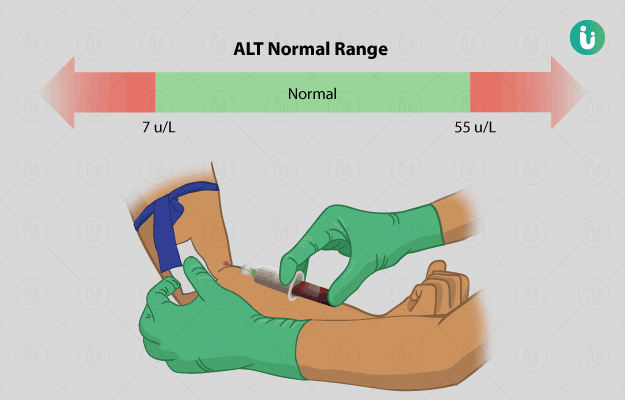What is Serum Glutamic Pyruvic Transaminase (SGPT) test?
Liver is a vital organ. It performs various important functions including the removal of harmful toxins from blood, helping in digestion of food by secreting a substance called bile, and production of energy in body.
A group of tests called liver function tests (LFTs) are typically used for early diagnosis, comprehensive evaluation, and proper monitoring of liver dysfunction or damage. One of the most important LFTs is enzyme serum glutamic pyruvic transaminase (SGPT), also known as alanine aminotransferase (ALT), which is normally found in greater concentrations in liver. It is also present in smaller amounts in kidneys, muscles and heart cells.
Damage to liver cells leads to secretion of SGPT into the bloodstream and hence increased levels of SGPT in blood can indicate liver dysfunction.






























